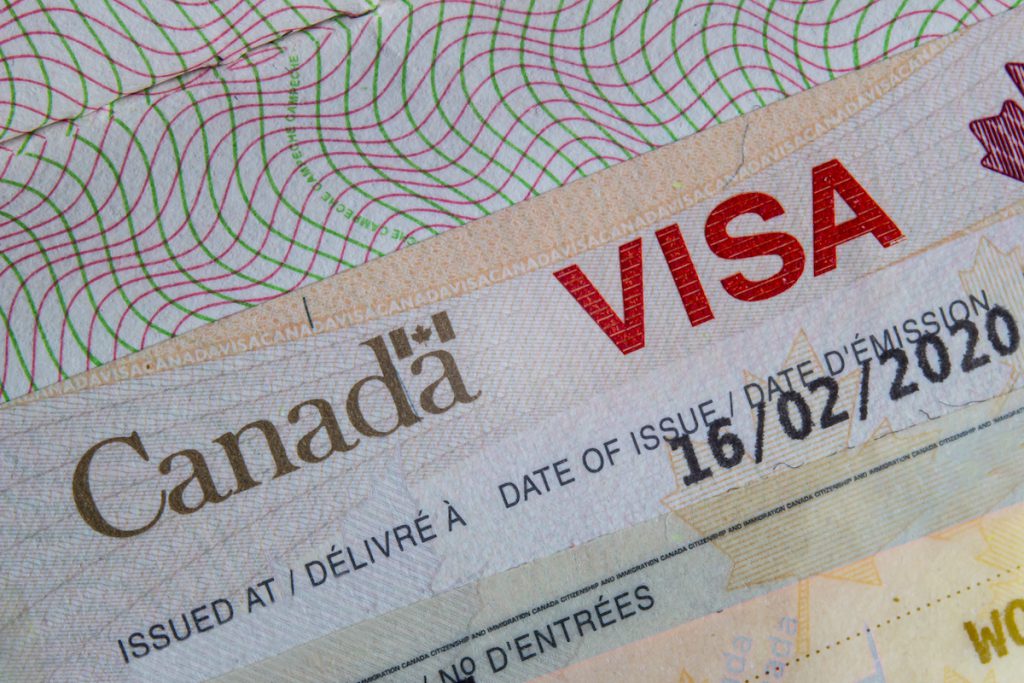As a non-Canadian citizen, you wish to discover this country, whether on vacation, for seasonal work or perhaps to get married there after having met your Canadian soul mate.
Whether you need a visa or not, since March 15, 2016, all international travelers entering Canada must have an Electronic Travel Authorization (eTA). The cost is $7 per person and the application is done quickly online.
In this article, we will help you find out what type of visa you will require depending on your circumstances and the reason for your trip. Also, we’ll explain what are your rights and protections as a visitor or an immigrant in Canada.
COUNTRIES WHOSE NATIONALS REQUIRE VISAS
For these nationals, regardless of the purpose and the length of their trip to Canada, a visa will be required.
Please check if your country is listed below and contact the Canadian Consulate or Embassy in your country to obtain an appropriate visa:
| Afghanistan | Albania | Algeria | Angola | Argentina |
| Armenia | Azerbaijan | Belize | Benin | Bhutan |
| Bolivia | Bosnia Herzegovina | Botswana | Burkina Faso | Burma (Myanmar) |
| Burundi | Cambodia | Cameroon | Cape Verde | Central African Republic |
| Chad | China | Colombia | Comoros | Democratic Republic of Congo |
| Republic of Congo | Costa Rica | Cuba | Djibouti | Dominica |
| Dominican Republic | East Timor | Ecuador | Egypt | El Salvador |
| Equatorial Guinea | Eritrea | Ethiopia | Fiji | Gabon |
| Gambia | Georgia | Ghana | Grenada | Guatemala |
| Guinea | Guinea-Bissau | Guyana | Haiti | Honduras |
| India | Indonesia | Iran | Iraq | Israel (if they only hold a Travel Doc) |
| Ivory Coast | Jamaica | Jordan | Kazakhstan | Kenya |
| Kiribati | North Korea | Kosovo | Kuwait | Kyrgyzstan |
| Laos | Lebanon | Lesotho | Liberia | Libya |
| Lithuania (for non-biometric passport) | Macao | Macedonia | Madagascar | Malawi |
| Malaysia | Maldives | Mali | Marshall Islands | Mauritania |
| Mauritius | Mexico | Federate States of Micronesia | Moldova | Mongolia |
| Montenegro | Morocco | Mozambique | Namibia | Nauru |
| Nepal | Nicaragua | Niger | Nigeria | Oman |
| Pakistan | Palau | Palestine | Panama | Paraguay |
| Peru | Philippines | Poland (for non-biometric passport) | Qatar | Russia |
| Rwanda | Sao Tome and Principe | Saudi Arabia | Senegal | Serbia |
| Seychelles | Sierra Leone | Somalia | South Africa | South Sudan |
| Sri Lanka | St. Kitts and Nevis | St. Lucia | St. Vincent and the Grenadines | Sudan |
| Suriname | Swaziland | Syria | Taiwan (for passport with no personal ID number) | Tajikistan |
| Tanzania | Thailand | Togo | Tonga | Trinidad and Tobago |
| Tunisia | Turkey | Turkmenistan | Tuvalu | Uganda |
| Ukraine | United Arab Emirates | Uruguay | Yemen | Zambia |
| Zimbabwe |
For the other nationals, if your plans are to study in a university or to work for more than 6 months, a visa will also be required.
WHAT TYPE OF VISA DO YOU NEED?
1. TEMPORARY RESIDENT VISA (TRV)
This visa is needed for people who want to visit Canada on vacations, visit relatives, conduct business, or travel to Canada for any other reason.
This visa is issued at the Canadian embassy nearest you and is placed in your passport before you travel.
Processing times can range between 3 to 140 days, and fees depend on several factors:
- Temporary Resident Visa SINGLE ENTRY: $75 per person
- Temporary Resident Visa MULTIPLE ENTRY: $150 per person
- Temporary Resident Visa FAMILY: $400
- Transit Visa: no cost
– What are the basic conditions for a TRV?
When you first arrive at the Canadian border, you must prove to the customs officer that you are not planning to settle permanently in Canada. You must be able to meet the following requirements:
- Will leave Canada at the end of your stay.
- Will not work or study in Canada unless that is the purpose of your visa.
- Have enough money to support yourself and accompanying family members while in Canada.
- Have enough money to return home.
- Are not a security risk to Canada.
- Do not have a criminal record and are law abiding.
- Are in good health.
– For how long is a TRV valid?
The validity of the visa is fixed when you arrive in Canada by the customs officer: he can grant you a very long period, such as 6 months, as well as a very short-term period, e.g. one week.

2. STUDENT VISA OR STUDY PERMIT
The application for a student visa is made once you have received by mail a letter proving your admission to a Canadian university. Once you have received your letter you must ask for your study permit on the official site for the government of Canada.
– Documents required to obtain a Canadian student visa
- Copy of the first six pages of your passport
- Two recent identity pictures
- Original or certified copy of the acceptance letter from the university or school
- Proof of financial means (around USD $7,000)
- The application fee (about $100)
– For how long is a Student Visa valid?
The validity period of the study permit cannot exceed the expiration date of the passport, and is generally given for the whole period of study.
3. WORK PERMIT
In Canada, two types of work permits are issued, depending on the applicant’s occupation:
- The closed permit, which authorizes you to work only for a specific employer.
- The open work permit, which allows you to be employed by any organization in Canada.
To apply for a work permit, you must be able to prove that you have actually found a job and that your profile is appropriate for your future work position. Your employer in Canada must therefore provide you with a letter of employment or a contract that includes the job title, the salary, and a description of your working conditions.
Then, the Canadian employer must obtain permission from Employment and Social Development Canada (ESDC) before hiring a temporary foreign worker. This authorization is called Labour Market Impact Assessment (LMIA), and it exists with the objective of putting Canadian workers first.
– Documents required to obtain a Canadian work permit
- A valid passport
- 2 recent photos
- The offer of employment to a foreign national exempt from a LMIA with proof of payment of the employer compliance fee, where applicable
- A copy of the LMIA, where applicable, and a copy of your job offer letter
- Proof that you meet the job requirements
- Payment of the application processing fee
- Proof of funds available
You will have to send your demand to a Canadian visa office or a Visa Application Center (VAC).
KNOW YOUR RIGHTS AND PROTECTIONS
If you do not respect the terms of your visa, you could be arrested and deported from Canada with the prohibition to return to Canada for a further stay.
How to extend your stay in Canada?
You came to Canada to visit, study or work. You have your visa or residence permit in hand and now wish to extend your stay. To comply, you will have to provide some documentation, and pay the corresponding fees.
Please note: you must submit your application at least 30 days before your temporary resident visa or study permit expires.
To achieve this, you will need to apply for a visitor record, which allows you to extend your stay in the country with a visitor status only. The procedure to follow and requirements can be found in this link.
We hope you have found this information useful, and that you have a succesful application for your temporary or non-immigrant visa.
You may be also interested in:




